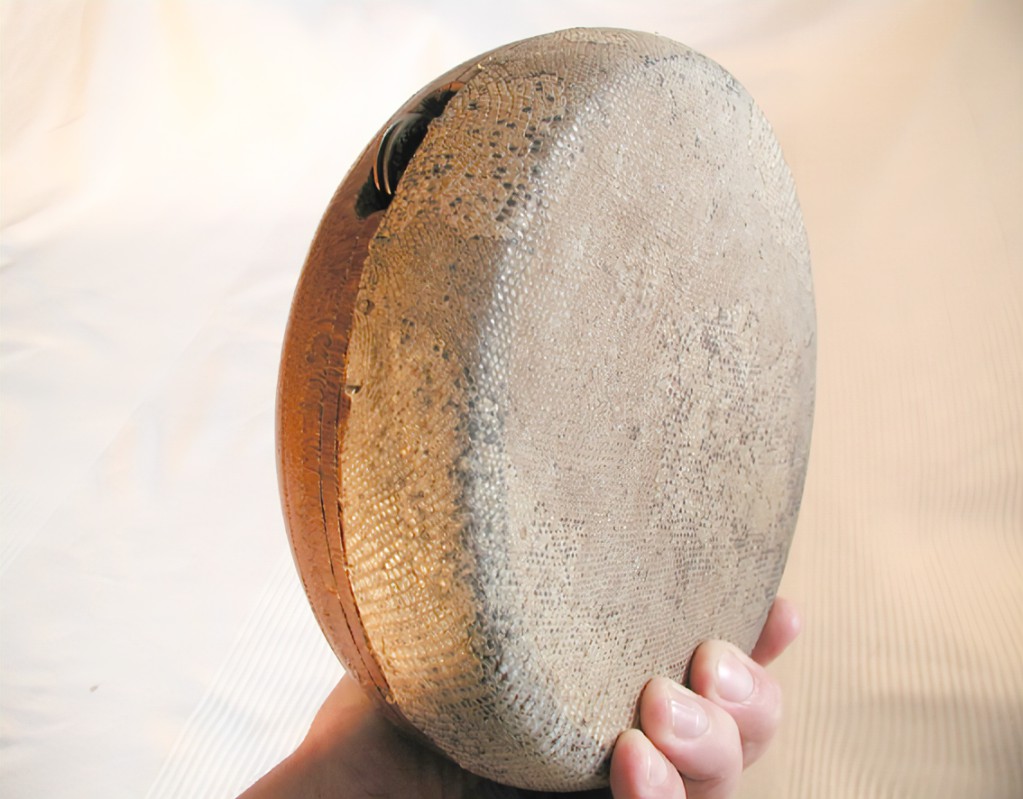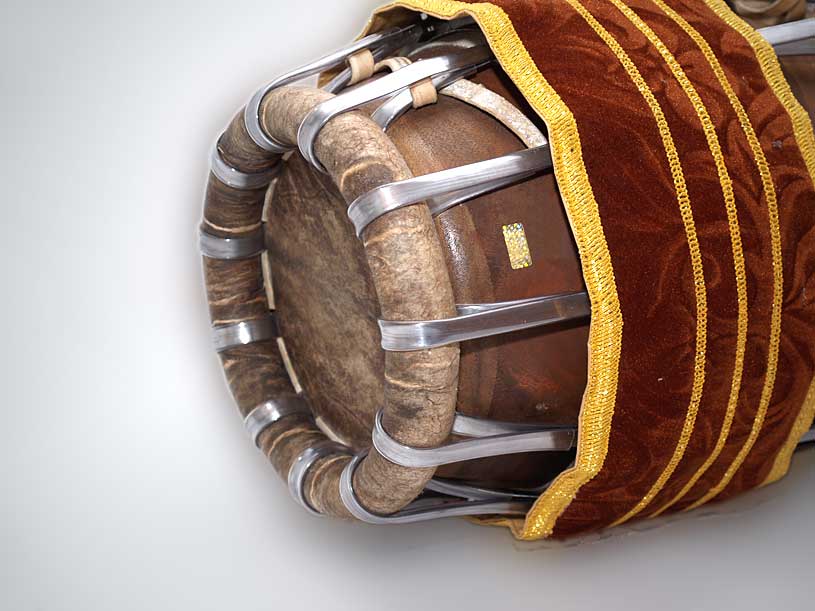
Kanjira
An Instrument that looks like a Tambourine. It is played with one hand play and other hand hold, controls the tones – gives a nice bass sound. It also has a few copper coins fixed to the edge which give the sound some treble. ...

An Instrument that looks like a Tambourine. It is played with one hand play and other hand hold, controls the tones – gives a nice bass sound. It also has a few copper coins fixed to the edge which give the sound some treble. ...

An Instrument that is shaped like a pot. A ghatam is made of special clay and is used as an accompanying instrument in concerts. The ghatam produces a crisp metallic sound. ...

A jaw-harp like instrument made of horse-shoe shaped metal body with a vibrating metal tongue and a trigger. It is placed close to the couth and played by plucking the trigger with the index finger. Fast patterns of sound can be produced from the vibration of the metal tongue and the movement of air pocket int he mouth. ...

A Thavil is a barrel-shaped percussion instrument from Tamil Nadu. It is also widely used in Andhra Pradesh, Karnataka, Kerala, Tamil Nadu and Telangana States of South India. It is used in temple, folk and Carnatic music, often accompanying the nadaswaram. The thavil and the nadaswaram are essential components of traditional festivals an ...



Konnakol (also spelled Konokol, Konakkol, Konnakkol) is the art of performing percussion syllables vocally in South Indian Carnatic music. Konnakol is the spoken component of solkattu, which refers to a combination of konnakol syllables spoken while simultaneously counting the tala (meter) with the hand. It is comparable in some respects ...


A Percussion instrument of ancient South Indian origin and the primary rhythmic accompaniment in a Carnatic music ensemble. During a percussion ensemble, the mridangam is often accompanied by the ghatam, kanjira, and morsing. It is a two-sided drum made out of wood from the root of jack fruit tree. ...